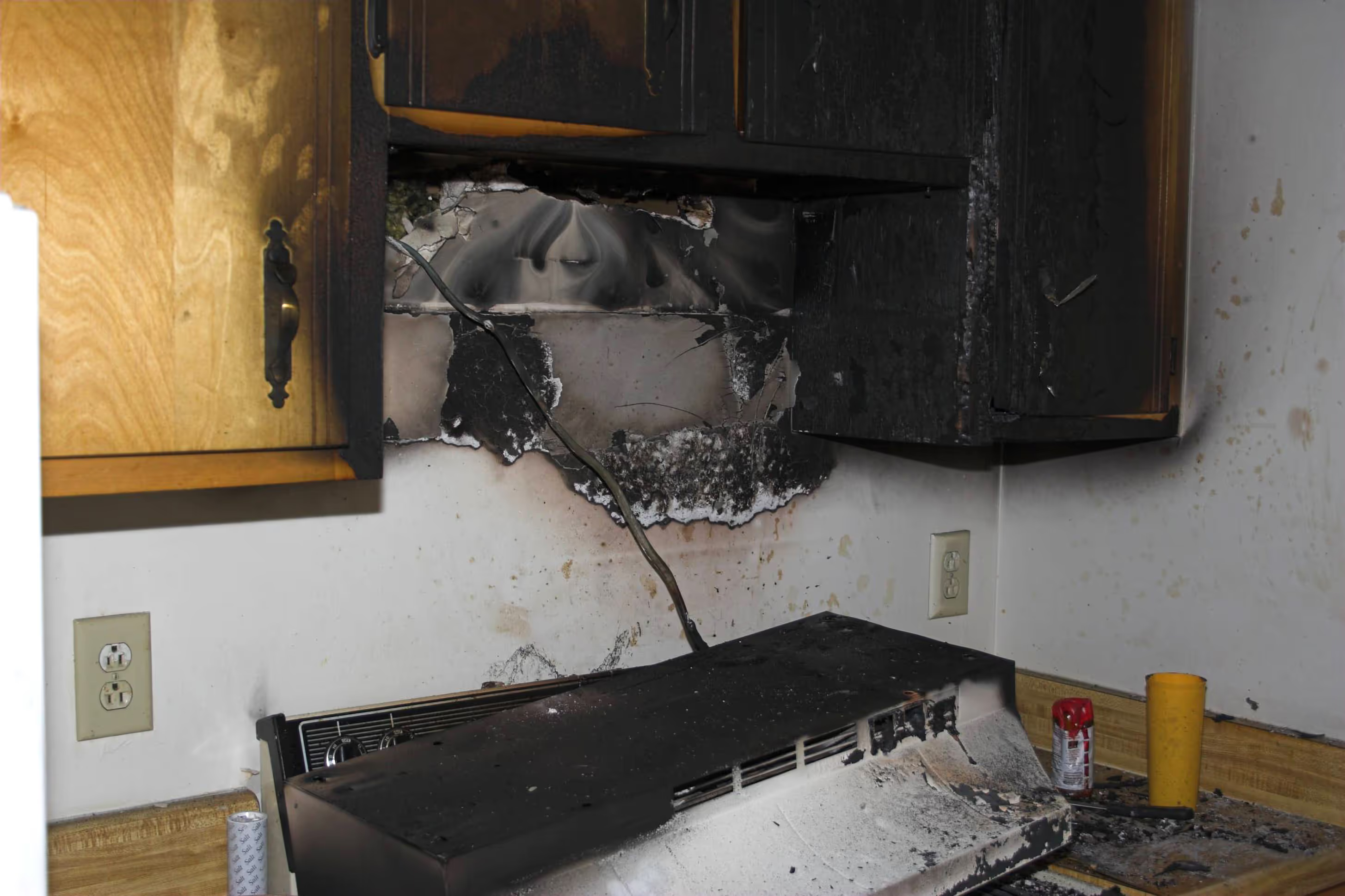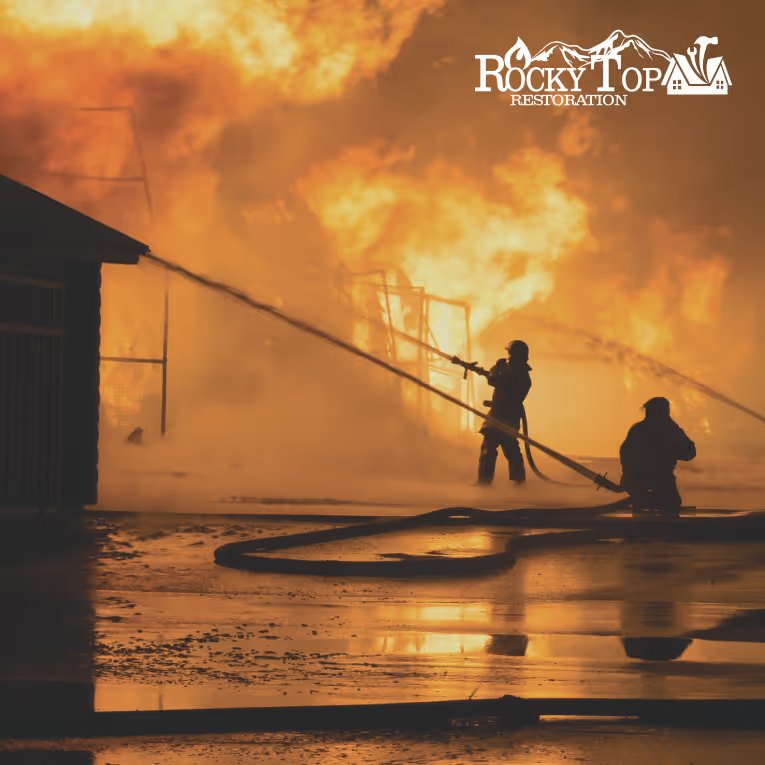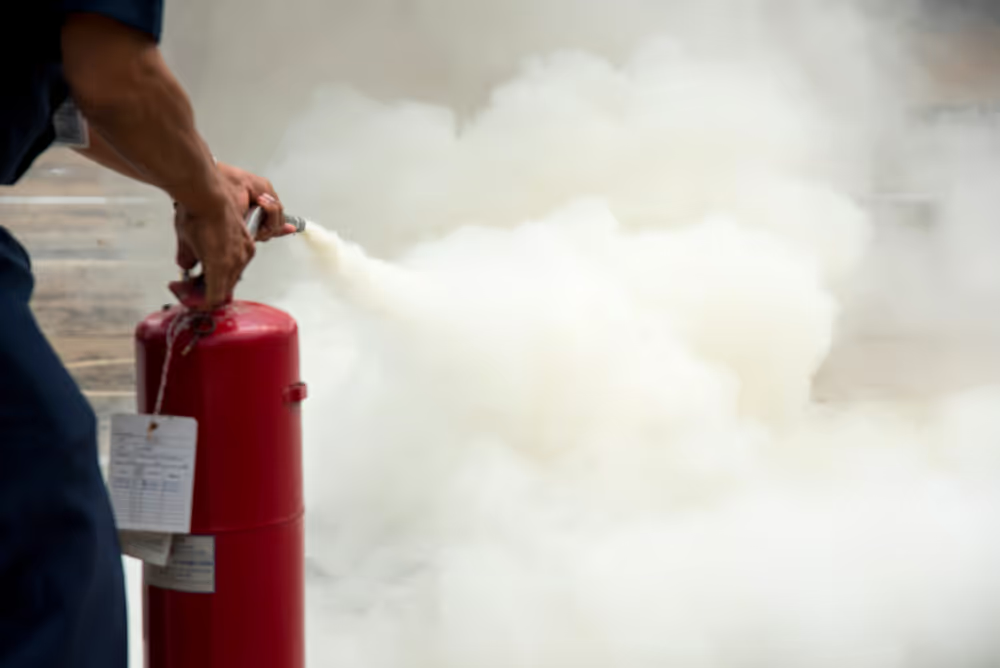Common Ways Fires Start in a Home (And How to Prevent Them)
There are many factors that can lead to a devastating fire within the home.

Home fires are among the most devastating disasters, often causing disastrous property damage. According to the National Fire Protection Association (NFPA), U.S. fire departments respond to an estimated 343,100 home structure fires per year, causing billions of dollars in damage. Understanding the most common causes of house fires helps homeowners take proactive steps to prevent them!
In this guide, we break down the most frequent causes of house fires and provide expert tips to help protect your home and loved ones.
1. Smoking Indoors: A Risky Habit
Smoking inside the home is a leading cause of residential fires. The danger is especially high in rooms with flammable materials like furniture, bedding, carpets, and curtains. A cigarette that isn’t fully extinguished may smolder for hours before igniting a fire. Here are a few ways to prevent smoking-related fires:
- Always smoke outside, away from flammable objects.
- Use deep, sturdy ashtrays and never toss cigarette butts into trash cans without ensuring they are completely out.
- Avoid smoking in bed or when feeling drowsy.
- Keep lighters and matches out of reach of children.
2. Unattended Candles: A Hidden Hazard
Candles add warmth and ambiance to a home, but these quickly become a fire hazard if left unattended. Many house fires start when candles are forgotten, knocked over, or placed near flammable items like curtains and decorations. Want to know how to safely use candles in your home? Here are a few tips:
- Never leave a burning candle unattended.
- Keep candles at least 12 inches away from anything that burns.
- Use candle holders that are sturdy and won’t tip over easily.
- Consider using flameless LED candles as a safer alternative.
3. Cooking Accidents: The Leading Cause of Home Fires
Kitchen fires are the number one cause of home fires and fire injuries, according to the NFPA. Cooking-related fires often occur because unattended stovetops, grease fires, or flammable items are too close to heat sources. Below are some important tips to remember when cooking in your kitchen:
- Never leave cooking food unattended.
- Keep flammable items (dish towels, wooden utensils, oven mitts) away from the stove.
- Avoid wearing loose clothing while cooking.
- If a grease fire occurs, NEVER use water—use a fire extinguisher or smother the flames with a metal lid.
4. Faulty Electrical Wiring and Overloaded Outlets
Electrical issues are a common cause of house fires, especially in older homes with outdated wiring. Overloaded circuits, frayed cords, and malfunctioning appliances often spark devastating fires.
How to Protect Your Home from Electrical Fires:
- Schedule a professional electrical inspection if you live in an older home.
- Avoid overloading outlets with multiple appliances.
- Replace frayed or damaged electrical cords immediately.
- Unplug small appliances when not in use.
5. Heating Equipment: Space Heaters and Fireplaces
During colder months, heating equipment becomes a leading cause of house fires. If not properly used or maintained, space heaters, wood stoves, and fireplaces ignite nearby materials. Take a look at a few of these heating safety tips:
- Keep space heaters at least three feet away from anything flammable.
- Turn off space heaters when leaving the room or going to bed.
- Have your fireplace chimney cleaned and inspected annually.
- Never use an oven to heat your home.
6. Outdoor Grills: Fire Risks Extend Beyond the House
Grills are often a fire hazard, especially if used too close to the home, wooden decks, or trees. A single stray spark ignites a fire that spreads rapidly. If you plan to pull out the grill soon, here are a few safety tips to consider:
- Keep grills at least 10 feet away from your home and flammable structures.
- Never leave a lit grill unattended.
- Clean grease and fat buildup from the grill regularly.
- Have a fire extinguisher or water source nearby in case of emergencies.
Taking Action: Fire Prevention and Safety Measures
In addition to addressing these common fire hazards, homeowners take extra precautions to minimize fire risks:
- Install Smoke Detectors: Ensure smoke alarms are placed in every bedroom, outside sleeping areas, and on each floor of your home. Test them monthly and replace batteries yearly.
- Have a Fire Extinguisher: Keep fire extinguishers in key areas, such as the kitchen and garage, and ensure everyone in the household knows how to use them.
- Create a Fire Escape Plan: Make sure all family members know at least two ways to exit each room in case of fire.
- Schedule Regular Inspections: Have a professional inspect appliances, electrical systems, and heating equipment annually.
What to Do If Your Home Suffers Fire Damage
Even with the best precautions, fires still happen. If your home experiences fire damage, Rocky Top Restoration is here to help. Our team provides professional fire damage inspections, repairs, and restoration services to get your home back to normal as quickly as possible.
For more information about our fire restoration services, visit Rocky Top Restoration today.
Need Immediate Help?
We Are Available 24/7!





